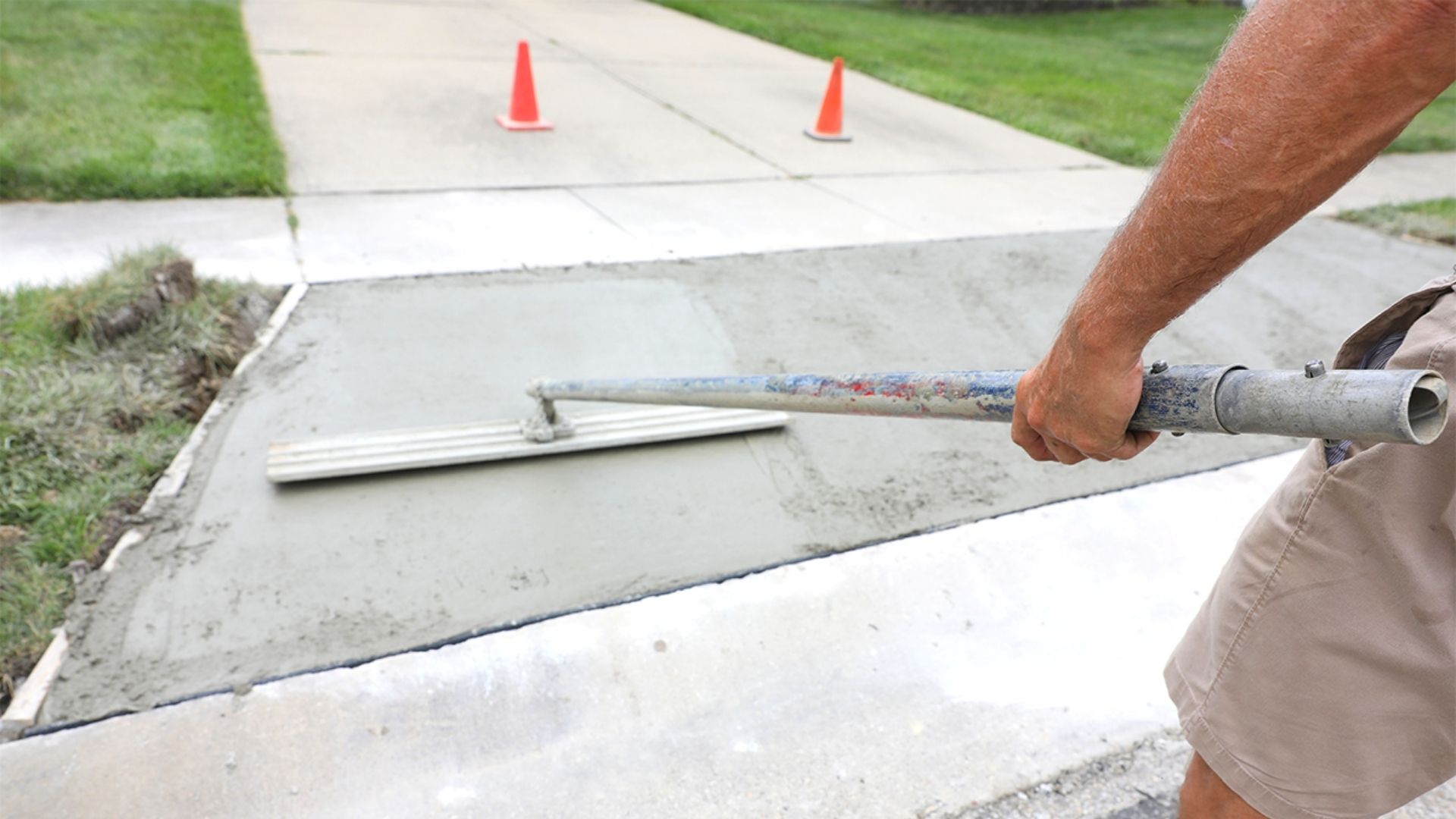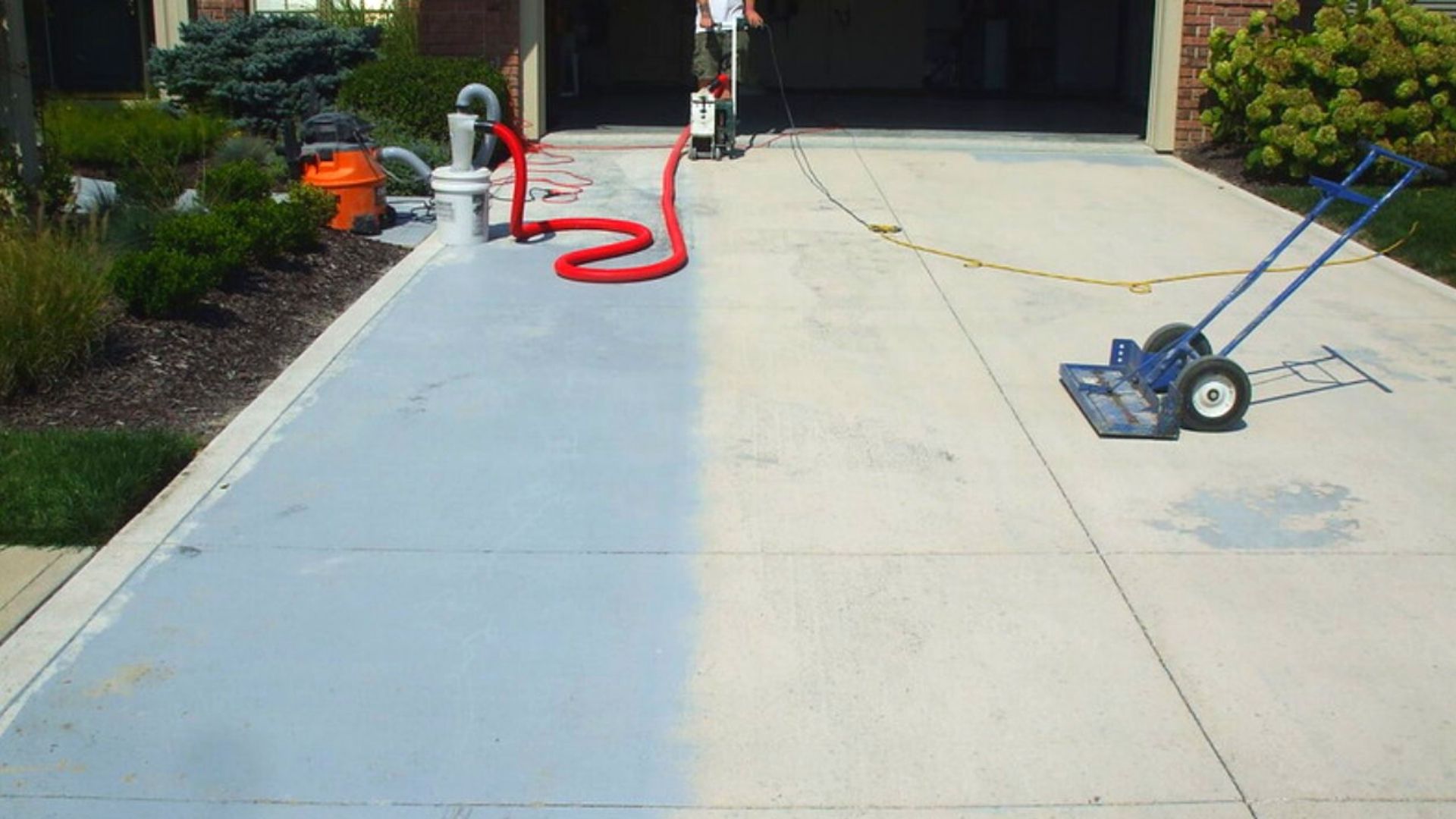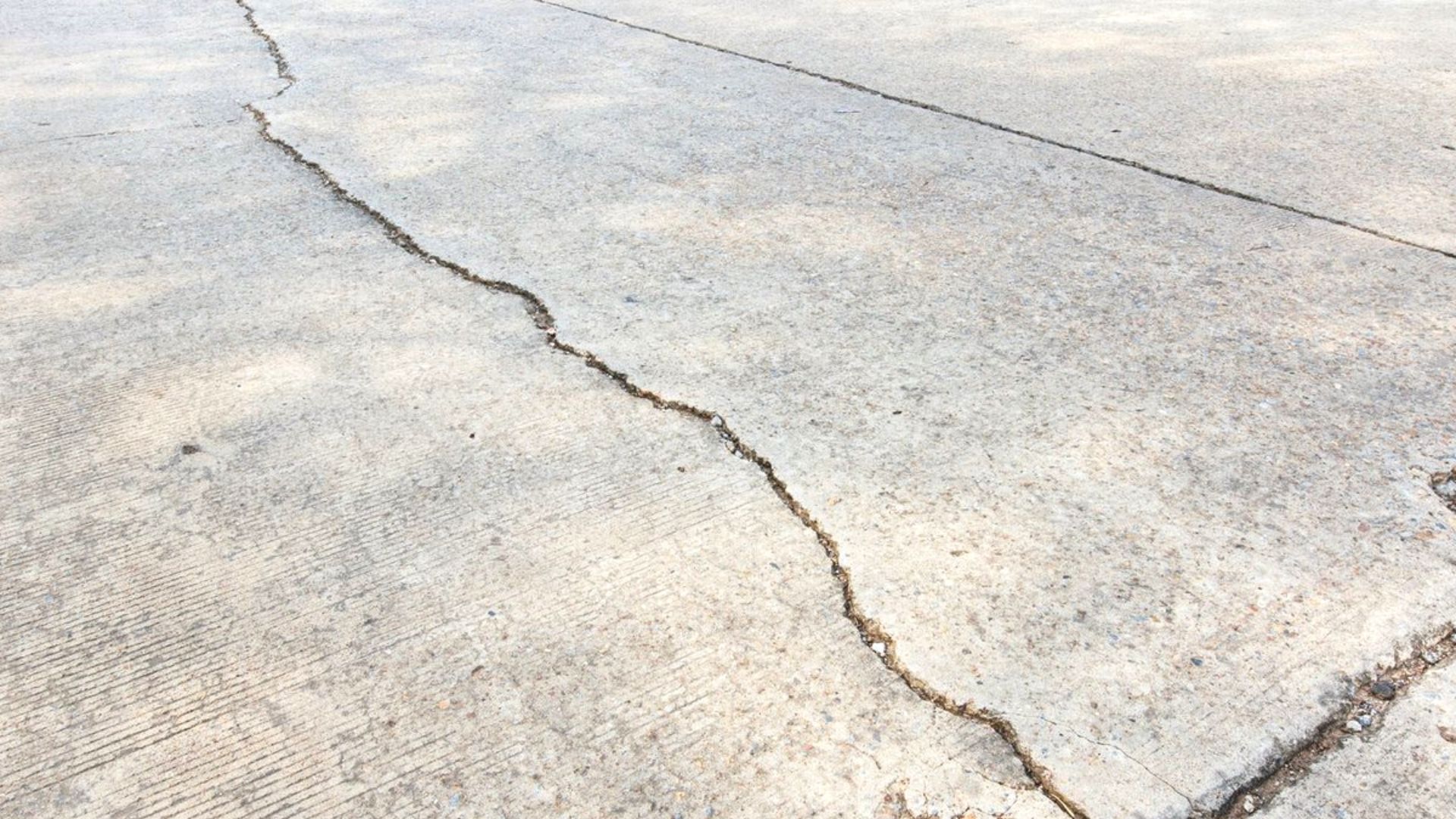Resurfacing vs Replacing a Driveway: What to Know

Is your driveway showing signs of deterioration?
You might have already started wondering whether to resurface or replace it altogether to set things right. But deciding the correct renovation procedure for a driveway can be tricky. There are a lot of factors you’ll need to consider and some basics regarding driveways that you must be aware of before proceeding.
And, to help you make a well-informed decision, we’ve compiled this simplified guide on resurfacing vs. replacing driveways. Read on to clear all your doubts.
Resurfacing Vs. Replacing A Driveway: What To Know

Signs That Your Driveway Isn’t In Great Shape
Firstly, you’ll need to keep in mind some common signs indicating that your driveway needs replacement or repair:
1. Drainage Problems
Your driveway might not be draining correctly, so the water is directed toward your home’s foundation. In such cases, you’ll need to look into the issue quickly to avert further damage to the property. This may include rectifying the drainage issues and waterproofing your driveway to prevent further damage.
2. Potholes
If potholes aren’t filled in as soon as possible, they can get bigger and bigger, leading to more significant damage to your car’s tires and even slowing your vehicle down if they aren’t filled in as quickly as possible.
3. Cracks
Cracks that are even less than ¼-inch wide should be mended to prevent them from spreading. If water expands or freezes within the crack, it will turn wider and deeper and become a more severe issue.
4. A Weathered Look
It is essential to keep in mind that your driveway may have faded or weathered with time. However, despite that, it is still safe for you to drive on it.
Cracked concrete highways can be repaired by patching them and adding a sealant so they are safe to use.
5. Crumbling Edges
If you observe crumbling on the edges of an asphalt driveway, it probably indicates the edges were quite thin from the start. So, it would be best if you considered adding extra edging to prevent more damage.
6. Sunken Areas
Is the driveway outside your garage sinking lower than the garage floor? In that case, you should try patching and levelling it again.
Important Factors To Consider
Regarding the hour’s question, most homeowners will naturally tend to avoid replacing the entire driveway as the costs can be high. But you should know that resurfacing might suffice sometimes, and starting afresh in other situations is essential.
So, here are some factors to consider to help you understand the better course of action to take in different situations:

1. Driveway Material
To determine whether you should resurface or replace your driveway, it is important to know what material it is made of. It is important to note that some surfaces can be repaired more easily than others. If your driveway has natural cobblestones, you may only need to repair some cracked pavers if your driveway is composed of them.
But concrete driveways will require resurfacing or resealing to conceal the patchwork. Another point worth considering is how well the driveway’s material will age. Materials that appear weathered in a few years due to regular exposure to the sun can be disguised by resurfacing them with a more long-lasting alternative.
2. Cracking
A driveway with visible cracks indicates that the surface is not in good shape and requires immediate attention to avoid more expensive issues in the future.
Generally, you can consider resurfacing cracks that are less than ¼-inch wide. The next step will be to refinish or reseal the whole surface to ensure the driveway looks uniform.
But in the case of cracks measuring greater than 6.5mm, a repair will be the same as applying a Band-Aid to a wound. Remember that larger cracks indicate significant problems as they let water seep in even after the area is patched.
This mainly occurs in areas subjected to freezing temperatures, as the water thawing beneath the surface causes more significant damage. In such situations, it’s best to replace the driveway surface entirely.
3. Age
Considering the pressure and load taken by driveways every day, almost no driveway is built to remain intact forever. An asphalt driveway will need a replacement every two years, whereas you must replace a concrete one after 25 years. A repair job isn’t considered a wise decision for driveways nearing a similar age.
Moreover, no matter the driveway’s condition, replacing an old surface with one made of newer and modern materials has several benefits. It can improve the curb appeal or attractiveness of the property and increase its overall value.
4. Proper Drainage
In the case of well-designed driveways with intact surfaces, water is least likely to have any adverse effect. But in case you find rainwater pooling in some areas or running down the driveway, you must check whether it’s affected by drainage issues.
Leaving the problem unresolved can weaken the surface and increase the chances of cracks or potholes. Based on the condition of the existing driveway surface, there are several ways to rectify the issue without replacing it entirely. These include curbing, replacing drainage pipes, or installing strip drainage systems.
Resurfacing Or Replacing Your Driveway
There you have it – that’s all we had to share about the various scenarios in which you might need to resurface or replace your driveway. However, by now, you may have figured out the best course of action for your driveway at your home. So, go ahead and begin making the preparations.
Before we sign off, we’d like to leave a few tips. If you have prior experience in DIY construction projects and plan to do it by yourself, it’s best to research the nitty-gritty of the particular technique.
Alternatively, you can hire a reliable concrete specialist company for the job. But make sure you carefully discuss your requirements with them, including the preferred materials, beforehand. Get in touch with the team at Top Coat Concrete if you are in Sydney. Our technicians have the knowledge and expertise to provide a permanent and cost-effective solution to fix your driveway.
And with that, it’s a wrap for today. But we’ll be back soon with more informative guides. Till next time!
Newsletter
Sign up to our flooring, epoxy and concrete blog newsletter and get all the latest news, tips and tricks from the industries best in Sydney.
Related Articles

Concrete Driveway: Should You Have It Repaired or Replaced?
Confused if you’re going to repair or replace your driveway? Check out this guide and learn the best way to address your driveway problems.

What Is The Best Concrete Sealer For Your Driveway
Looking to pave your driveway with a suitable concrete sealer? Check out this brief guide to know which sealer is the best for you!

Amazing Benefits Of Epoxy Flooring For Commercial Kitchens
Wondering if epoxy flooring is the best choice for your commercial kitchen or not? Then check out our guide to know the perks of installing one in your space.